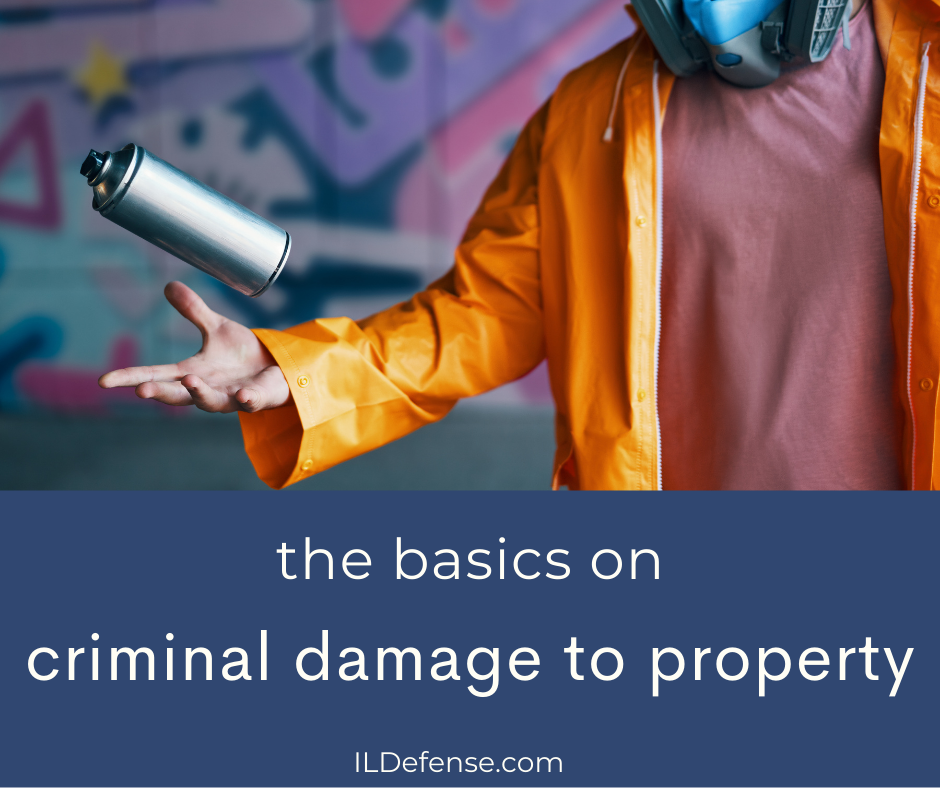
If you’re like many people, you know that criminal damage to property is a crime – but what actually counts as that sort of damage, and what’s the possible penalty if you’re caught and convicted? This guide explains.
Criminal Damage to Property in Illinois: The Basics
Under Illinois law, criminal damage to property (technically called criminal defacement of property) occurs when a person:
- Knowingly damages any property of another
- Recklessly by means of fire or explosive damages property of another
- Knowingly starts a fire on the land of another
- Knowingly injures a domestic animal of another without his or her consent
- Knowingly deposits on the land or in the building of another any stink bomb or any offensive smelling compound and thereby intends to interfere with the use by another of the land or building
- Knowingly damages property with the intent to defraud an insurer
- Knowingly shoots a firearm at any portion of a railroad train
- Knowingly and without proper authorization cuts, injures, damages, defaces, destroys or tampers with any fire hydrant or any public or private fire fighting equipment, or any apparatus appertaining to fire fighting equipment
- Intentionally, without proper authorization, opens any fire hydrant
Penalties for Criminal Damage to Property
The penalty for criminal damage to property depends on the type of damage done. For example, numbers 8 and 9 above are Class A misdemeanors, which carry a penalty of
Then, 1, 2, 3, 5 and 6 are Class B misdemeanors, as long as the damage to property doesn’t exceed $500. If the value is between $500 and $10,000, it’s a Class 4 felony. Additionally, if the crime is against property that belongs to a school or place of worship, or to farm equipment or immovable items of agricultural production, or property that memorializes or honors an individual or group of police officers, fire fighters, members of the armed forces or veterans, it’s a Class 4 felony.
Violation of numbers 4 or 7 are also usually Class 4 felonies.
You can get more specifics, including exceptions to the penalties, here.
Do You Need to Talk to an Attorney?
If you’ve been accused of a crime, we may be able to help you – and don’t worry: It’s completely confidential. Call us at 847-920-4540 or fill out the form below to schedule your free, private consultation with an experienced and skilled Chicago criminal defense attorney now.
Contact Us
"*" indicates required fields




